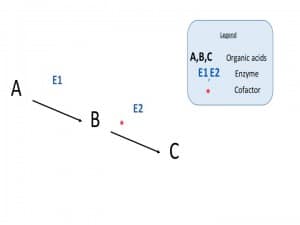
03 Mar Cellular Energy and Why It Matters To You
The Mysterious World of Energy Explained
People come to our clinic with various common complaints, including unexplained tiredness, digestive complaints and bloating, muscular and joint pain, low mood and frequent headaches. All of these symptoms can be directly linked to problems with how we make energy inside the cell, known as mitochondrial dysfunction.
What Is Mitochondrial Dysfunction?
The mitochondria can be considered the engine room of the cell. Its primary function is to help turn the food we eat (protein, fats and carbohydrates) into chemical energy (ATP) which can then be used to power the thousands of reactions that occur inside the cell every second. For this reason, the mitochondria is a vital part of cell function, and therefore how our body functions as a whole.
The way that the mitochondria makes energy is through a complex cycle of enzymatic reactions. In order for energy production to occur as it should, every step in the cycle needs to be functioning correctly. When this does not happen, mitochondrial dysfunction can result and can lead to compromises in how the cell functions. This has implications in all types of cells including the brain, heart, liver, digestive system and muscle.
Mitochondrial dysfunction can result from two different causes- genetics and lifestyle. Those unlucky enough to be born with an error in mitochondrial function can attribute their symptoms to a genetic mutation. However, the mitochondria are also sensitive to poor dietary choices (particularly trans-fats and excess sugars) as well as indirectly through lifestyle (stress, environmental toxins, poor gut function, infection) all of which can lead to excessive oxidation and inflammation which compromises the function of the mitochondria.
How Can We Test The Function Of Our Energy Making Mitochondria?
The simple and accurate way to assess the function of the mitochondria is by using an Organic Acids Test. Organic acids are intermediates of mitochondrial metabolism, and are made along each step of the energy production process. Let’s look at a simple example:

A – B – C represents the progression of organic acid reactions inside the mitochondria to make energy. The presence of a functioning enzyme (E1, E2) and a vitamin cofactor (*) are needed to make this reaction from ‘A’ to ‘B’ to ‘C’ proceed efficiently. An excess of organic acid ‘B’ would result from being unable to proceed to ‘C’, due to a deficiency of a specific cofactor (a vitamin) or deficiency of enzyme E2 (a specific amino acid or genetic mutation). Organic acid ‘B’ would then accumulate in high levels and be detected in the urine.
How Does The Organic Acids Test Help?
The role of the Organic Acids Test is to determine what specific steps of mitochondrial function are compromised. In addition to this, other organic acids in the urine are able to be measured that can identify imbalances in gut function (e.g. presence of parasites) and brain function (e.g. neurotransmitter metabolism). This provides a detailed and comprehensive picture of several body systems. The good news is that the Organic Acids Test can help us develop a treatment protocol that can assist both genetic and lifestyle based issues with mitochondrial, brain and gut function.
The Organic Acids Urine Test measures 39 different organic acids including:
27 cellular energy and amino acid metabolites
These give specific information about which energy producing processes are compromised, and provides you with specific vitamin cofactors and amino acids to correct mitochondrial function.
4 neurotransmitter metabolites
These metabolites provide specific details about what may be causing mood and anxiety issues, by measuring the metabolites of neurotransmitters including serotonin.
8 gastrointestinal metabolites
This part of the panel uses details of specific organic acids to determine if parasites or leaky gut (which promote conditions such as IBS, autoimmune disease and chronic fatigue) exists in the intestines. This can confirm if these conditions are driving mitochondrial dysfunction and provides a platform for intervention.
The presence of toxic compounds can also be identified in this panel, identifying the need for specific detoxification support.
Through this compressive profile, the Organic Acids Test provides a means of providing you with highly individualised medicine which gives your unique biochemistry the consideration it deserves. From taking this test you can expect a fully prepared individualised naturopathic prescription including:
- Specific vitamins, minerals and amino acids
- Anti-oxidant protection
- Detoxification support
- Dietary and lifestyle modifications.
Please contact the clinic and arrange a quick chat with one of our naturopaths for further info or to arrange an appointment. (08) 9339 1999.
